This information was just announced at the workshop "Digital Twin shaping the future of semiconductor human resources" held on the morning of June 12, at the National Innovation Center.
Attending the event were representatives from two semiconductor "eagles" Lam Research and Dassault Systèmes, Hanoi National University, Hanoi University of Science and Technology...
According to Mr. Andrew Goh, Vice President and General Manager of Lam Research Asia- Pacific , the company will sponsor Semiverse solutions for training facilities in Vietnam.
This is a digital twin solution that connects innovation centers around the world, allowing students to access machines, equipment and conduct experiments remotely.
Meanwhile, Dassault Systèmes' digital twin solution SEMI UNIV + RSE also offers great opportunities in semiconductor workforce training through the connection between the real world and the virtual world.
Mr. Brian Lo, Director of Dassault Systèmes Vietnam, said that this solution contributes to eliminating the challenges of the semiconductor industry in the digital transformation process.
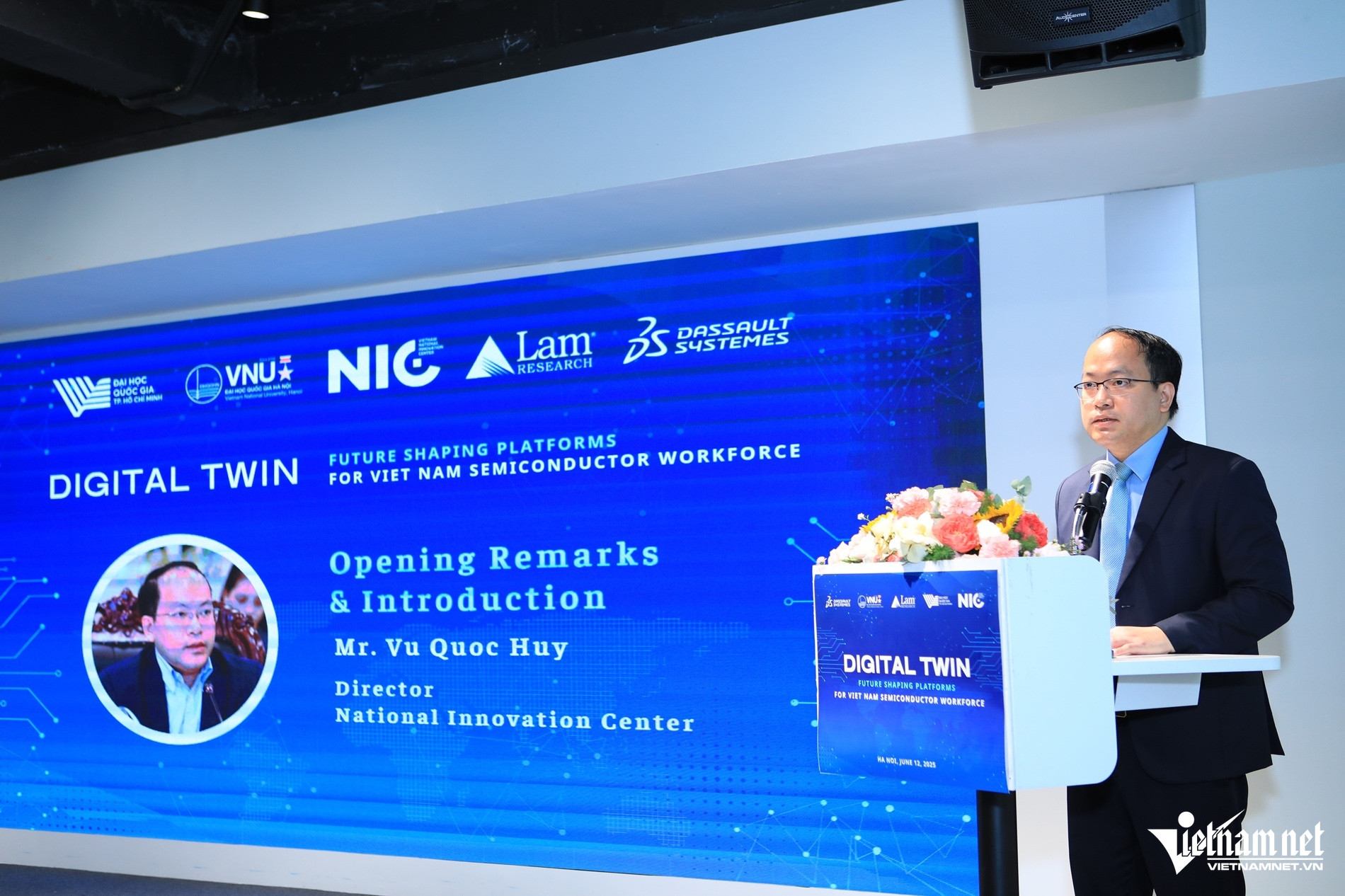
Appreciating the partnership between Research and Dassault Systèmes with universities, research institutes, and businesses, Mr. Vu Quoc Huy, Director of the National Innovation Center, called this "a fundamental milestone in building an ecosystem for training, knowledge transfer, and mastery of semiconductor technology in Vietnam".
He pointed out that digital twin will optimize investment costs, reduce operating costs and allow access to advanced equipment models in a simulation environment, thereby improving training quality to promptly meet the practical needs of businesses.
Schools and businesses need to understand and support each other
Also at the event, experts from two semiconductor companies and representatives from universities discussed the “Three-party” cooperation model – State, school, enterprise – in semiconductor human resource training.
Abundant and high-quality human resources are a highlight of Vietnam compared to other countries. Therefore, focusing on investing in training and retraining human resources to quickly enter the labor market is a strategic approach and a decisive factor to seize investment cooperation opportunities, access technology transfer and promote rapid and sustainable economic development based on science, technology and innovation.
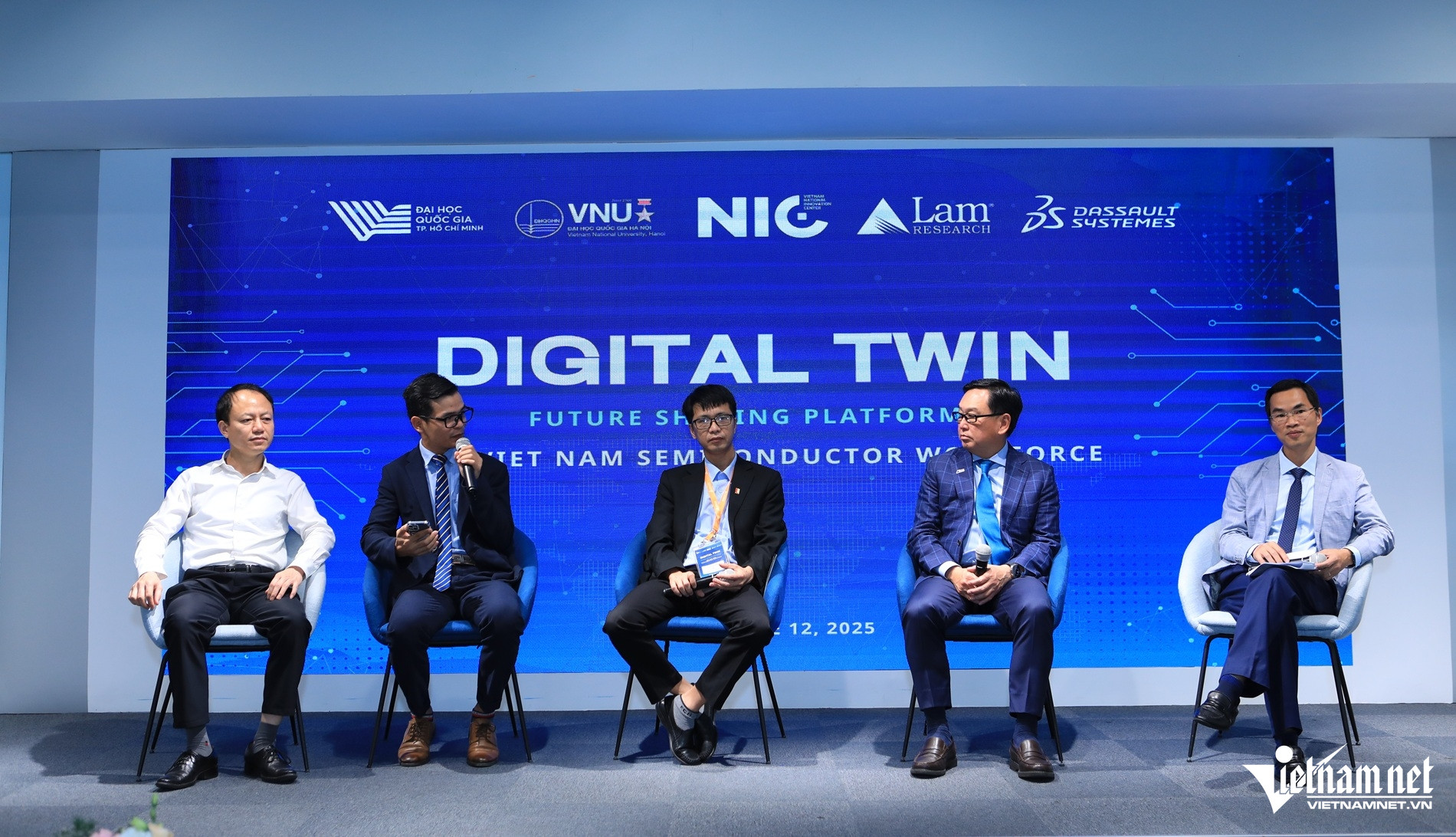
Prof. Dr. Tran Xuan Tu, Director of the Institute of Information Technology (Hanoi National University) and Prof. Dr. Nguyen Duc Hoa, Vice Principal of the School of Materials (Hanoi University of Science and Technology) pointed out that universities play a very important role in developing Vietnam's semiconductor human resources and in fact they have very good professors and students.
However, they are facing many challenges such as the curriculum not yet meeting the practical requirements of businesses, the cost of setting up expensive labs, and the lack of shared facilities for schools to overcome capital constraints.
In that context, cooperation with industry and international universities is considered an effective solution and has been and is being implemented.
Mr. Nguyen Duc Hoa raised the issue of schools training students with basic knowledge and then businesses can support on-site training.
Agreeing with this view, Mr. Tran Xuan Tu shared: “Enterprises focus on production, so we have to support them by providing high-quality ideas. But to do this, we also need support from businesses to train students” .
In addition, it is necessary to cooperate with many countries with expertise in the semiconductor field to transfer technology, ideas and experience.
From a business perspective, Mr. Andrew Goh also affirmed the importance of working closely with universities to incorporate virtual programs into training programs.
In addition, he recommended that the Government - schools - businesses should sit together to review projects, select one or several projects to invest in based on criteria of R&D, commercialization potential as well as capital sources.
According to Mr. Vu Quoc Huy, the National Innovation Center is a bridge between the State - Schools - Enterprises to find solutions to develop the AI ecosystem in Vietnam.
On this journey, digital twin technology will optimize investment costs, reduce operating costs and allow access to advanced equipment models in a simulation environment, thereby improving training quality to promptly meet the practical needs of businesses.
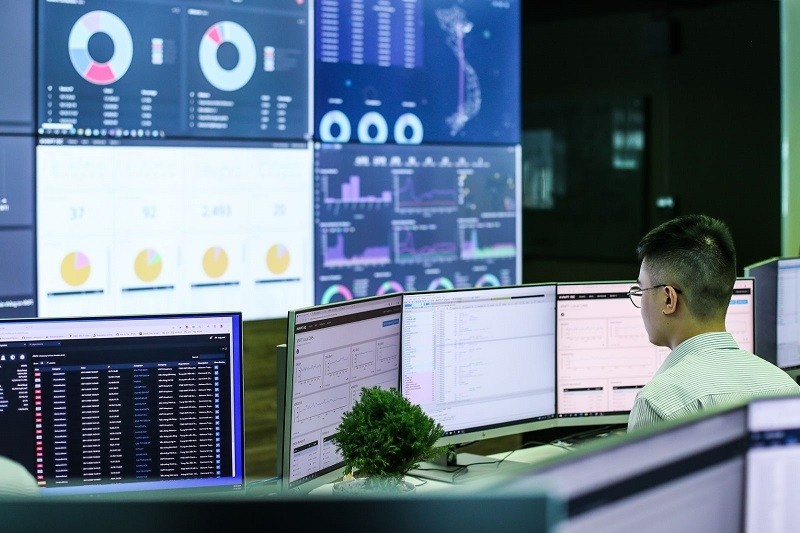
Source: https://vietnamnet.vn/dai-gia-my-tai-tro-phan-mem-dao-tao-nhan-luc-ban-dan-cho-viet-nam-2410902.html












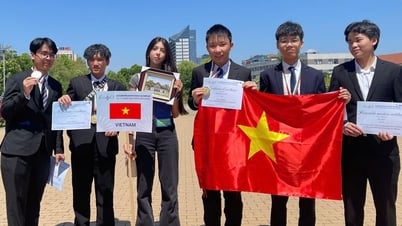


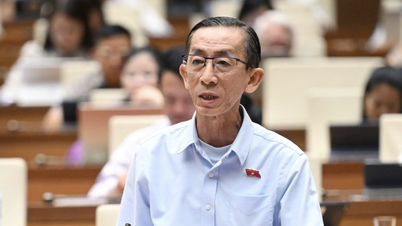

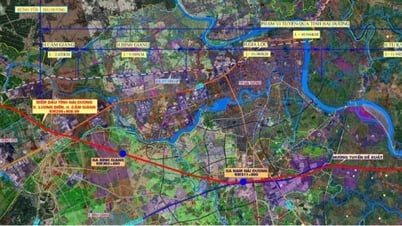






















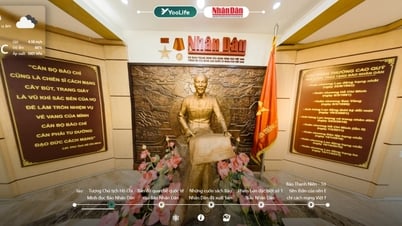


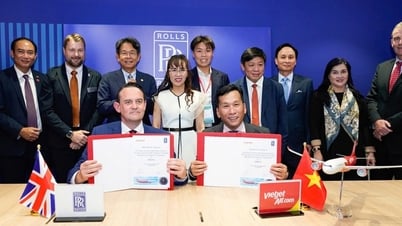

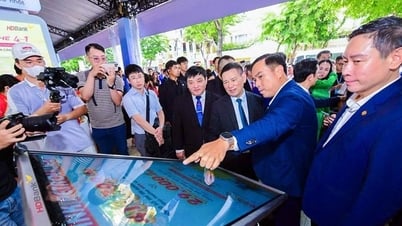

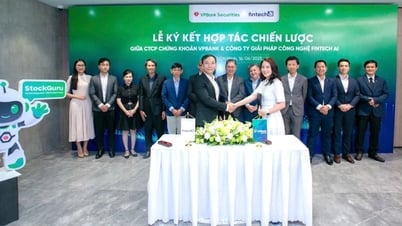

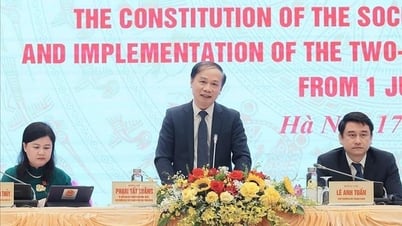





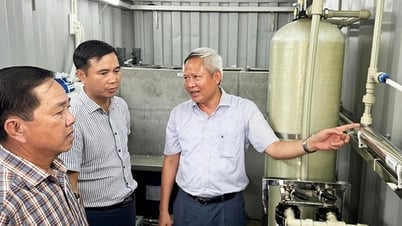

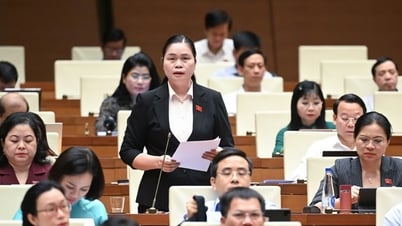



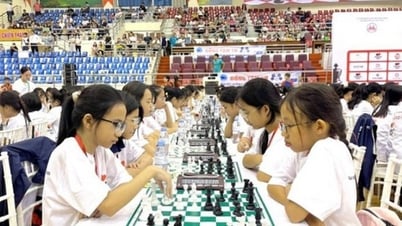






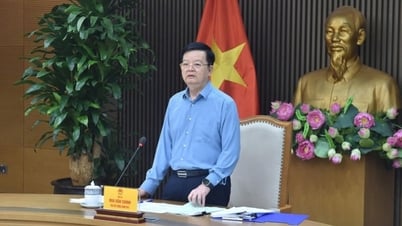



















Comment (0)